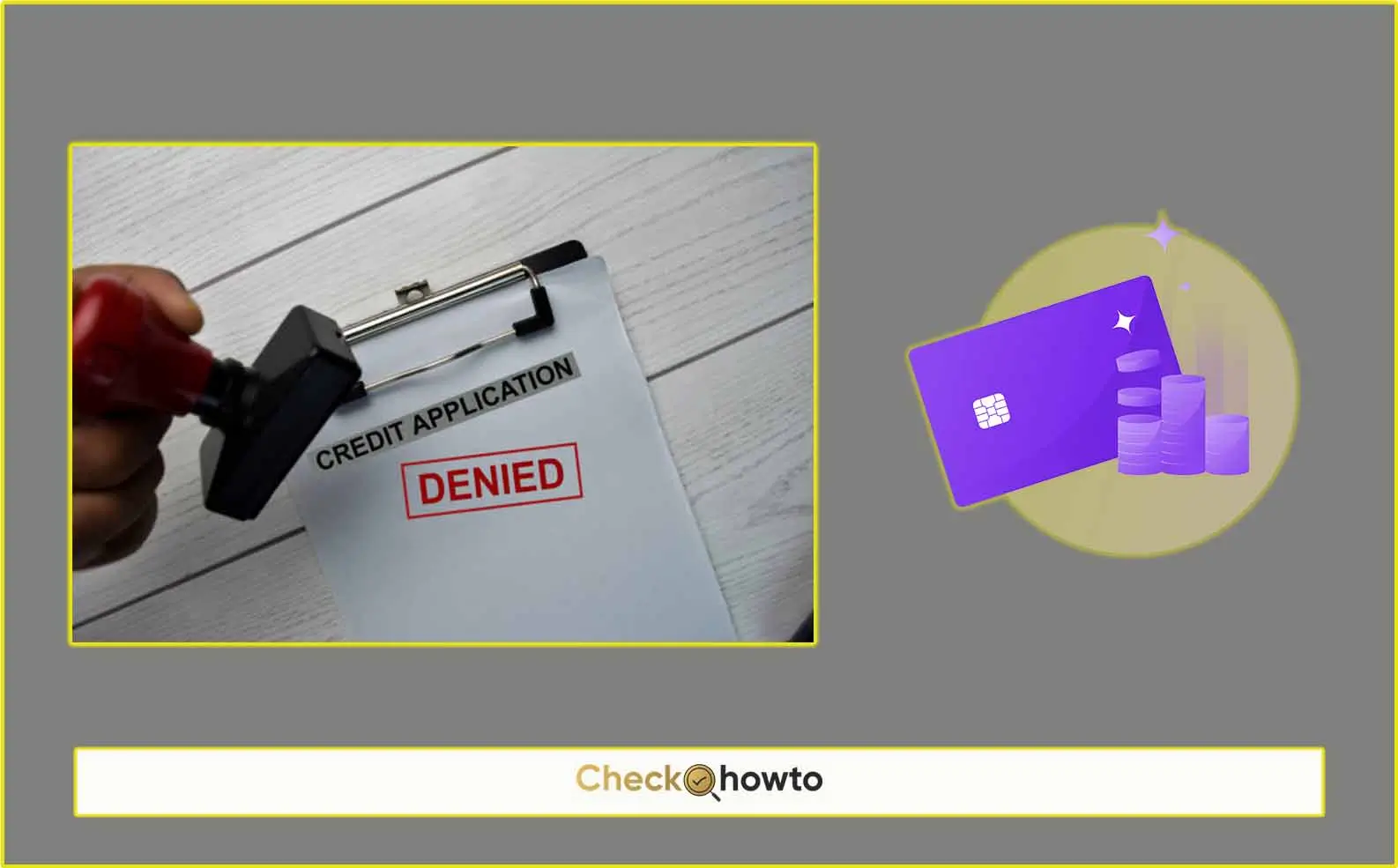When I applied for my last credit card, I was confident I’d get approved. My finances seemed solid, and I’d done my research. But then, the rejection letter arrived, and I was left wondering, “Why was my credit card application denied?” If you’re reading this, you’ve probably asked yourself the same question.

Getting turned down for a credit card can feel like a personal blow, but it’s not the end of the road. In this article, I’ll walk you through the common reasons your application might have been denied, what you can do about it, and how to improve your chances next time.
Understanding Credit Card Denials
When a credit card issuer denies your application, they’re required by law to send you an adverse action notice. This letter explains why they turned you down. It’s frustrating, but it’s also a chance to understand what went wrong. As Experian notes, “If you get denied for a credit card, the card issuer is required to tell you why”. Let’s break down the most common reasons for rejection, so you can see where you might need to make changes.
1. Low Credit Score
One of the first things issuers look at is your credit score. I learned this the hard way when I applied for a premium rewards card with a score that wasn’t quite up to par. Most credit cards, especially those with perks like travel rewards or cash back, require a good to excellent credit score, typically 670 or higher on the FICO scale. If your score is lower, issuers might see you as a risky borrower.
- Why it matters: A low credit score often signals past issues like missed payments or high debt, making issuers hesitant.
- What you can do: Check your credit score through free services like Credit Karma or your bank. If it’s low, focus on paying down debt and making on-time payments. Over time, your score will improve.
2. High Debt-to-Income Ratio
Your debt-to-income (DTI) ratio compares your monthly debt payments to your income. When I reviewed my finances after a denial, I realized my student loans and car payments were eating up a big chunk of my income. Issuers want to know you can handle new credit without stretching your budget too thin. Capital One explains that a high DTI is a common reason for denials.
- Why it matters: A DTI above 36% can raise red flags, as it suggests you’re already juggling significant debt.
- What you can do: Pay down existing debts, especially high-interest ones, or increase your income through a side hustle. This lowers your DTI and makes you a stronger candidate.
3. Insufficient Credit History
If you’re new to credit, issuers might deny your application because you don’t have enough history. This happened to a friend of mine who applied for a card right after college. Without a track record, issuers can’t gauge how responsibly you’ll manage credit.
- Why it matters: Lenders need evidence of your payment habits. No history—or a “thin” credit file—can lead to rejection.
- What you can do: Start with a secured credit card or become an authorized user on someone else’s card to build history. NerdWallet suggests these steps to establish credit.
4. Too Many Recent Applications
I once got excited about earning sign-up bonuses and applied for three cards in a month. Big mistake. Each application triggers a hard inquiry, which can ding your credit score slightly. Too many inquiries in a short period make you look desperate for credit. CNBC confirms that hard inquiries can cause a temporary score drop.
- Why it matters: Issuers might think you’re overextending yourself or facing financial trouble.
- What you can do: Space out applications by at least six months. Check if you’re prequalified for cards to avoid unnecessary inquiries.
5. Inaccurate Application Information
This one’s on you (and me, honestly). When I rushed through an application, I accidentally entered the wrong income. Issuers verify details like income, employment, and address. If something doesn’t add up, they might deny you outright or flag your application for fraud.
- Why it matters: Inconsistencies raise suspicions about your reliability or intentions.
- What you can do: Double-check your application before submitting. Ensure your income, address, and other details match your records.
6. Mismatch with Card Requirements
Not every card is right for everyone. Forbes points out that sometimes, “there’s a mismatch between your creditworthiness and the specific card you applied for”. If you apply for a premium card with strict requirements, but your credit profile doesn’t align, you’ll likely get denied.
- Why it matters: Each card has unique criteria, like minimum income or credit score thresholds.
- What you can do: Research cards that match your credit profile. Look for ones designed for fair credit or first-time applicants if your score isn’t stellar.
What to Do After a Denial
A denial stings, but it’s not a personal attack. As NerdWallet puts it, “A credit card rejection isn’t a personal slight, but it can sure feel like one”. Here’s how you can bounce back:
- Review the Adverse Action Notice: This letter is your roadmap. It lists specific reasons for the denial, like a low score or high DTI. Use it to pinpoint areas to improve.
- Check Your Credit Report: Errors on your credit report, like an incorrect late payment, can lead to denials. Get free reports from Equifax, Experian, and TransUnion at AnnualCreditReport.com. Dispute any mistakes you find.
- Call the Issuer: Some issuers offer reconsideration. I once called and explained a temporary dip in my score due to medical bills. They approved me after reviewing my case. Be polite and prepared to explain your situation.
- Improve Your Credit: Focus on paying down debt, avoiding new inquiries, and making timely payments. Bankrate suggests waiting at least six months before reapplying to show progress.
- Choose the Right Card: Next time, apply for a card that fits your credit profile. Secured cards or starter cards are great for rebuilding or establishing credit.
How to Improve Credit as a College Student
How a Denial Affects Your Credit
Here’s some good news: A denial itself doesn’t hurt your credit score. However, the hard inquiry from the application might lower your score by a few points. According to CNBC, “Being denied for a credit card doesn’t hurt your credit score. But the hard inquiry from submitting an application can cause your score to decrease”. These effects are temporary, fading within a year or two.
Preventing Future Denials
To boost your approval odds, take these steps before applying:
- Monitor Your Credit: Use free tools to track your score and report. I check mine monthly to catch issues early.
- Pay Down Debt: Lowering your credit card balances and other debts improves your score and DTI.
- Get Prequalified: Many issuers offer prequalification tools that estimate your approval odds without a hard inquiry.
- Research Cards: Read reviews and check eligibility requirements. Sites like Credit Karma or NerdWallet list cards by credit level.
- Be Patient: Building credit takes time. Don’t rush into multiple applications.
Final Thoughts
When my credit card application was denied, I felt discouraged, but I learned it was a chance to improve my financial habits. You might feel the same way, but don’t let a rejection stop you. By understanding why your application was denied—whether it’s a low credit score, high debt, or a simple mismatch—you can take control. Review the adverse action notice, check your credit, and make a plan. With time and effort, you’ll be better positioned to get approved for the card you want.
If you’re ready to take the next step, start by pulling your credit report or exploring cards that match your profile. Have you faced a credit card denial? Share your experience or questions below, I’d love to hear from you.



